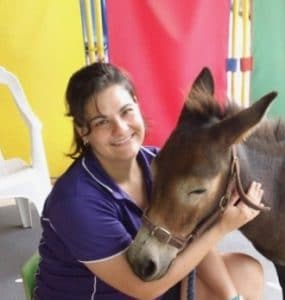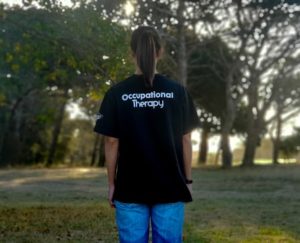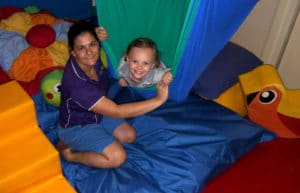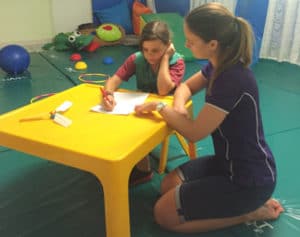There are lots of different therapeutic techniques performed by physiotherapists and occupational therapists to provide treatment for mobility issues. One of the more advanced therapies used by these practitioners is neuro-developmental treatment, also known as NDT.
In this article, we’ll find out what neuro-developmental treatment in physiotherapy and occupational therapy is, who benefits from it and what to expect from an NDT session.

What is Neuro-Developmental Treatment (NDT)?
Neuro-developmental treatment (NDT) is a hands-on therapy that looks to improve the mobility and function of individuals – including children and adults – who struggle with movement due to neurological issues such as strokes, head trauma or cerebral palsy.
This type of therapy promotes guided and facilitated movements as a form of treatment to establish stronger connections in the tactile, vestibular and somatosensory receptors found in the body. NDT therapists tend to work alongside a team of caregivers and physicians to provide a series of treatments that complement one another, using the latest research to guide the course of treatment.
What are the benefits of NDT?
There are a number of benefits associated with NDT as a technique in physical and occupational therapy, including:
- Improves functional movements and encourages proper posture for day-to-day activities as a way to prevent further deterioration of movement.
- Uses key points of control to enhance and improve movement and mobility.
- Helps individuals with cerebral palsy by improving posture control and movement when working against gravity.
- Improves cortical reorganisation to benefit an individual’s quality of life and engagement in social activities.
What conditions are suitable for NDT treatments?
NDT treatment is suitable for an extensive range of conditions associated with neurodevelopmental loss or degradation. With that said, there are a few conditions in particular that are well-suited to this form of treatment, such as:
- Cerebral palsy: This is a group of disorders that impact an individual’s mobility, balance and posture. It’s one of the most common forms of motor disability in children, and it’s caused by damage or abnormal development to the regions of the brain responsible for muscle control. The symptoms of cerebral palsy vary from individual to individual, but it generally affects motor control and mobility.
- Strokes: A stroke is a serious medical condition that happens when a blood vessel that carries nutrients to the brain is blocked by a blood clot or bursts. When a stroke occurs, the blood flow to the brain is temporarily cut off, which starves brain cells of oxygen, causing cell death. When cell death occurs in the brain, the region that is affected doesn’t work properly, leading to memory degradation or loss of muscle control.
- Traumatic brain injuries: A traumatic brain injury occurs when the head or body receives a strong impact, such as a sporting collision or a car accident. These events can impact normal brain function and cause a number of issues in terms of motor development including speech, posture, balance and mobility.
What to expect from an NDT therapy session
Although an NDT therapy session is tailored to the individual needs of a patient, there are a few common practices found in most sessions, such as:
- Examination and intervention, which is usually part of an iterative process that uses clinical problem-solving to develop patient strength and assess their limits.
- Task analysis, which involves an analysis of a patient’s day-to-day quality of life. This includes looking at posture, movement and any support required.
- Systems theory, which is a tool to evaluate why a patient has a certain posture, gait or limitation. This looks at any strengths, weaknesses or other factors that impact mobility for the individual.
- An open, two-way dialogue between the practitioner and the patient. This is to help provide the right level of care to improve motor function and enhance existing skills to promote a good quality of life.
Contact our occupational therapists in Darwin to make an appointment and find out if NDT is a suitable treatment for you or your loved one. Call us on (08) 8985 6067 today.
Author

Barbara Kapser
Barbara Kapser is our psychologist at Stepping Stones in Life Therapy Service in Darwin. She's a member with the Australian Psychological Society and the Australian Association for Infant Mental Health.
She specialises in perinatal infant mental health, attachment disorders, developmental trauma and behaviour support.










